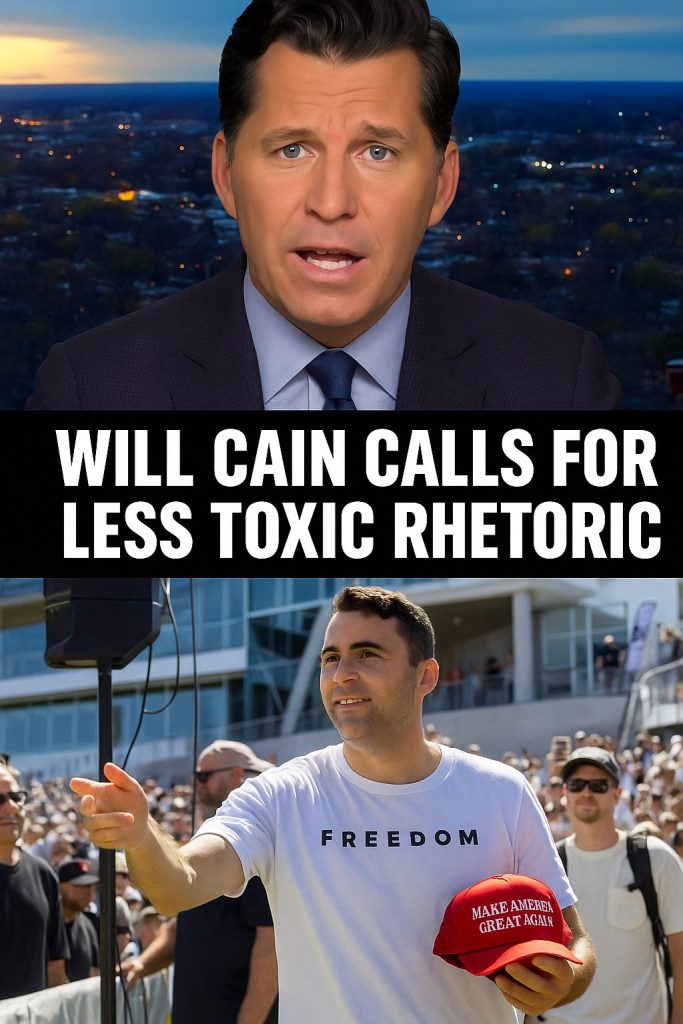In a powerful segment on America’s Newsroom, Fox News commentator Will Cain drew attention to the increasingly inflammatory rhetoric in American political discourse, highlighting the potential repercussions of labeling opponents with extreme terms such as “Hitler,” “fascists,” or “racists.” Cain’s remarks come at a time when political polarization seems to reach new heights, leaving many Americans wondering about the consequences of such divisive language.
Cain argues that for over a decade, the use of these loaded labels has been prevalent among political commentators, activists, and even politicians, particularly in social media spaces. He emphasized that this trend is not without consequences, impacting how political debates are conducted and how civil discourse is perceived. “You can’t spend a decade calling your opponents Hitler, fascists, bigots, racists… and think that won’t have some repercussion,” Cain asserted, highlighting a growing sentiment among Americans who are exhausted by the vitriol.
This contentious climate has led to a notable shift in political engagement. As Cain points out, the sheer intensity of name-calling can create divisions that stymie productive dialogue, pushing away moderates and even leading to disengagement from the political process altogether. With the 2024 presidential election on the horizon, this issue is more critical than ever, as candidates and their supporters navigate the treacherous waters of political rhetoric.
The implications of such language extend beyond mere words; they influence how citizens view political opponents, often fostering a culture of intolerance and hostility. Cain’s remarks resonate with many who believe that political discourse should strive for a level of respect and understanding, rather than devolve into name-calling and fear tactics.
Critics of extreme political labeling argue that it diminishes the gravity of historical atrocities. For instance, comparing contemporary political figures to Hitler trivializes the Holocaust and undermines the historical context of such comparisons. Moreover, this type of rhetoric can alienate potential allies and reduce the chances for bipartisan cooperation, which is essential for governing in a democracy.
As social media platforms amplify these dramatic narratives, the consequences of divisive language echo throughout society. With echo chambers becoming the norm, where users only interact with like-minded individuals, the cycle of politicized language and its repercussions may only worsen, creating a less informed and more polarized electorate.
Cain’s critique has sparked discussion not only among political commentators but also among everyday citizens who are fed up with the divisive atmosphere. Many are calling for a return to civil discourse, where differences in opinion can be debated without resort to inflammatory hyperbole. As the political landscape shifts, the hope is to foster an environment conducive to genuine conversation and understanding.
The message is clear: words matter, and the ramifications of rhetoric can shape the political landscape for generations. As voters prepare to engage in the upcoming election cycle, the challenge will be to rise above the fray and engage with one another in meaningful dialogue.
Where to Learn More
- Will Cain Calls Out Political Name-Calling – Fox News
- The New Language of Political War: From Rhetoric to Reality – The New York Times
- Lessons on Free Speech from Campus Speech Codes – Politico
- The Growing Divide in Political Rhetoric – The Washington Post
- How Political Discourse is Changing in the Age of Social Media – BBC News


